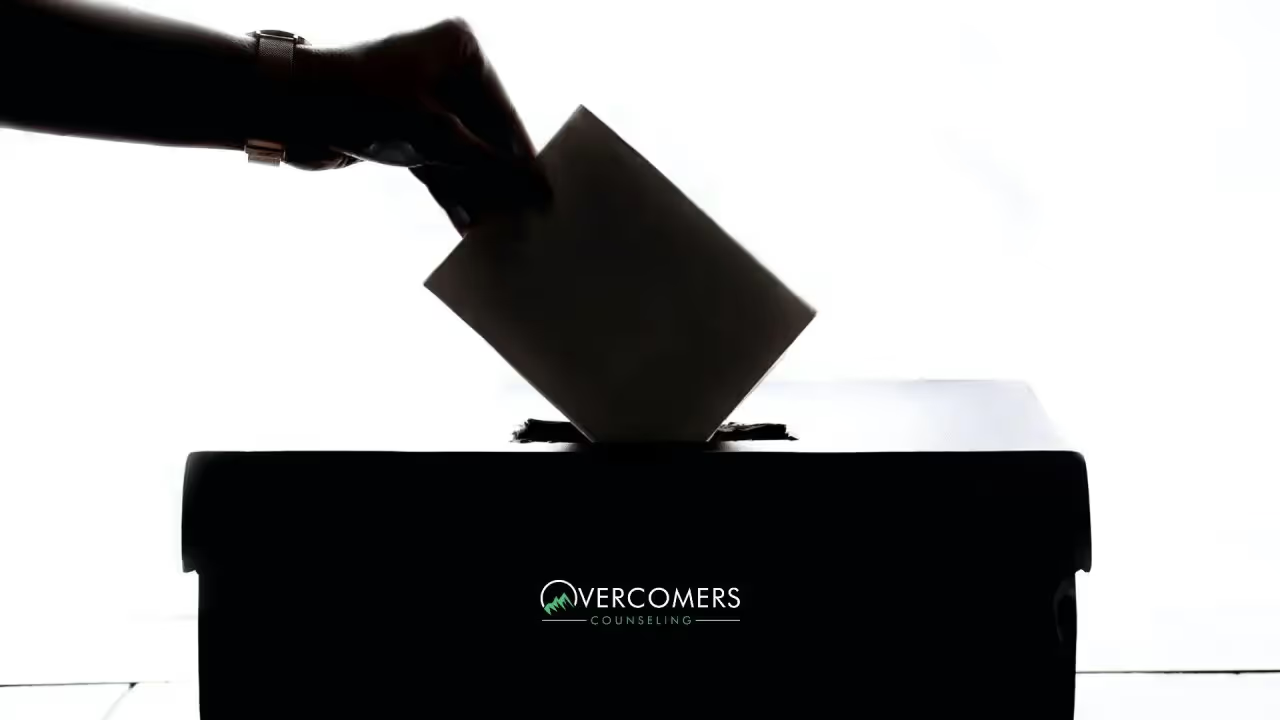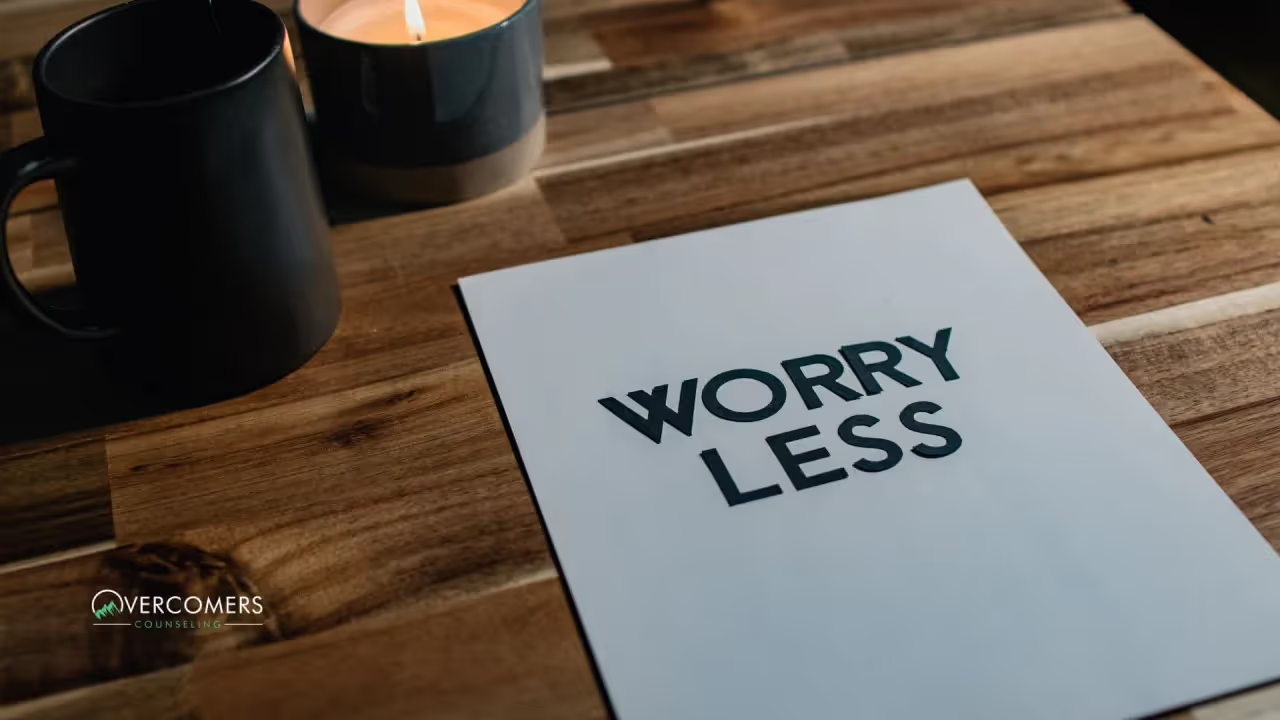In the whirlwind of political tensions, heated debates, and high-stakes decisions that come with election season, it's easy to overlook an essential aspect...

In the whirlwind of political tensions, heated debates, and high-stakes decisions that come with election season, it's easy to overlook an essential aspect - our mental and emotional well-being.
As we dive headfirst into the world of politics, it's crucial to remember that our participation in the democratic process doesn't have to come at the expense of our health.
This discussion aims to shed light on the importance of managing election-induced anxiety and the pivotal role of self-care during these challenging times.
We will explore actionable strategies for maintaining a balance between staying politically involved and preserving personal well-being, ensuring a healthier, more productive engagement with the political landscape.
Politics can be a significant source of stress for many people due to various factors.
First, the inherent uncertainty of political outcomes can create a sense of instability and apprehension.
This is especially true during election seasons when the future direction of policies that affect our lives hangs in the balance.
Furthermore, the divisive nature of politics often leads to heated debates and conflicts among friends, families, and communities, which can be emotionally draining.
The frequently changing political landscape also requires constant adaptation, adding to the stress.
The role of social media in exacerbating political anxiety cannot be overlooked.
The constant stream of updates, news alerts, and opinion pieces can lead to information overload, causing heightened anxiety and stress.
Moreover, social media platforms often become arenas for contentious and polarizing political discourse.
These online debates rarely lead to constructive dialogues, instead fostering division and hostility.
This polarized environment can make it difficult for individuals to express their views without fear of backlash, further contributing to stress and anxiety.
Political election anxiety manifests itself through a variety of signs and symptoms, which are often similar to those of general anxiety disorder.
Individuals may experience constant worry or fear about the outcome of the election, with these thoughts being difficult to control.
They may also have trouble sleeping, suffer from headaches or stomach problems, or feel fatigued and restless.
Some people may find themselves constantly checking news sources or social media for updates on the election, even when it disrupts their daily routine or causes them distress.
Other common symptoms include feelings of irritability, difficulty concentrating, and a sense of impending doom or danger.
Political election anxiety differs from other types of anxiety in its triggers and focus.
While general anxiety can be triggered by a wide range of factors, political election anxiety is specifically linked to political events, particularly elections.
The source of the worry and fear is not just the election itself, but also the potential consequences of the election results.
This type of anxiety often intensifies as the election date approaches and can persist even after the results are announced, especially if the outcome is contentious or unexpected.
It's also worth noting that political election anxiety can affect individuals regardless of their political affiliation or level of political engagement.

Managing political election anxiety requires a proactive approach. The first step is limiting news consumption.
While staying informed is essential, excessive exposure to news, especially during an election season, can fuel anxiety.
Try setting specific times during the day for catching up on news and avoid checking updates constantly.
Implementing digital detox periods, where you disconnect from your devices, can also be beneficial.
The second step involves engaging in calming activities. This could mean practicing mindfulness or meditation, taking long walks in nature, doing yoga, or any other activity that helps you relax and disconnect from the stressful environment.
Regular exercise can also help reduce anxiety by releasing endorphins, chemicals in the brain that act as natural painkillers and mood elevators.
Educating oneself about the political process forms the third step. Understanding how elections work, the roles of different offices, and the impact of individual votes can help alleviate feelings of uncertainty and helplessness.
It's also useful to remember that changes in policies take time and are often not as dramatic as feared.
The fourth step is fostering healthy political discussions. This means setting boundaries for political conversations, avoiding debates that are likely to escalate into arguments, and focusing on listening and understanding rather than trying to convince or win an argument.
Remember, it's okay to disengage from a discussion if it becomes too heated or stressful.
Finally, if political election anxiety is significantly affecting your daily life and well-being, it may be helpful to seek professional help.
Mental health professionals can provide strategies and tools to manage anxiety more effectively. They can also provide a safe space to express your fears and concerns without judgment.
The role of self-care in managing election-induced anxiety cannot be overstated.
Self-care refers to proactive steps taken to preserve and enhance one's mental, emotional, and physical health.
During a politically charged election season, the stress and tension can significantly amplify anxiety levels.
By engaging in self-care, individuals can help alleviate these heightened feelings of anxiety.
This might involve maintaining a balanced diet, getting adequate sleep, incorporating regular exercise into daily routines, or even simply taking time out to relax and do things that bring joy and tranquility.
By prioritizing self-care, individuals can create a buffer against the stress of the election season, helping to keep anxiety at manageable levels.
In conclusion, managing political election anxiety is a significant aspect of maintaining mental and emotional well-being, especially during high-stakes election seasons.
By implementing strategies such as limiting news consumption, engaging in calming activities, understanding the political process, fostering healthy discussions, and seeking professional help when necessary, individuals can effectively navigate this potentially stressful period.
Furthermore, prioritizing self-care can create a much-needed buffer against election-related stress, ensuring a balance between staying politically informed and preserving personal well-being.
Ultimately, it's about finding a healthy balance that allows for active participation in the democratic process without compromising one's mental health.
Addressing anxiety is crucial because it can significantly impact your quality of life and overall well-being. Left untreated, anxiety can lead to more severe mental health issues, relationship problems, and difficulty functioning in daily life.
Other activities which have been found helpful in reducing both immediate feelings of anxiousness and long-term anxieties associated with chronic disorders include yoga, journaling, nature walks, art therapy, volunteering, and other low-stress activities. Additionally, developing a healthy lifestyle incorporating adequate sleep, physical activity, and nutritious meals can help reduce overall stress levels.
It's important that you feel comfortable discussing personal matters with your therapist in order to open up and get more out of therapy sessions; therefore finding someone who meets certain criteria like experience level, expertise areas, and personality is key when selecting a therapist who can give meaningful feedback about how best handle issues related to anxiety or other mental health concerns.
Ignoring anxiety can exacerbate symptoms and make it more challenging to manage over time. This can result in a negative impact on your personal, professional, and social life, leading to feelings of isolation and even depression.
Yes, Medicaid provides insurance coverage for therapy services specifically designed to help individuals struggling with anxiety, depression, and other mental health conditions.
The duration of anxiety counseling varies for each individual, depending on the severity of their anxiety and their progress in therapy. Our therapists will regularly assess your progress and adjust your treatment plan as needed.